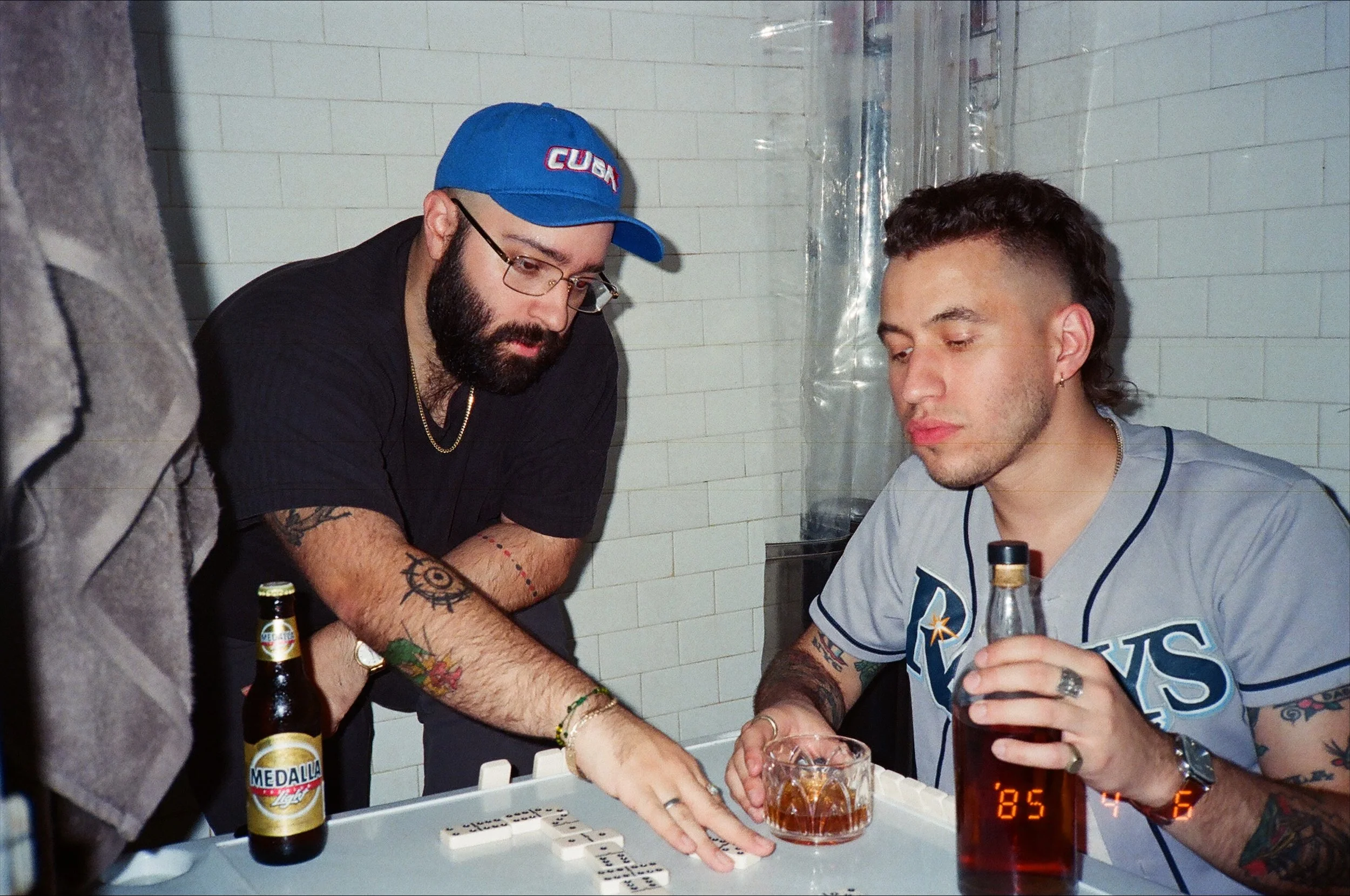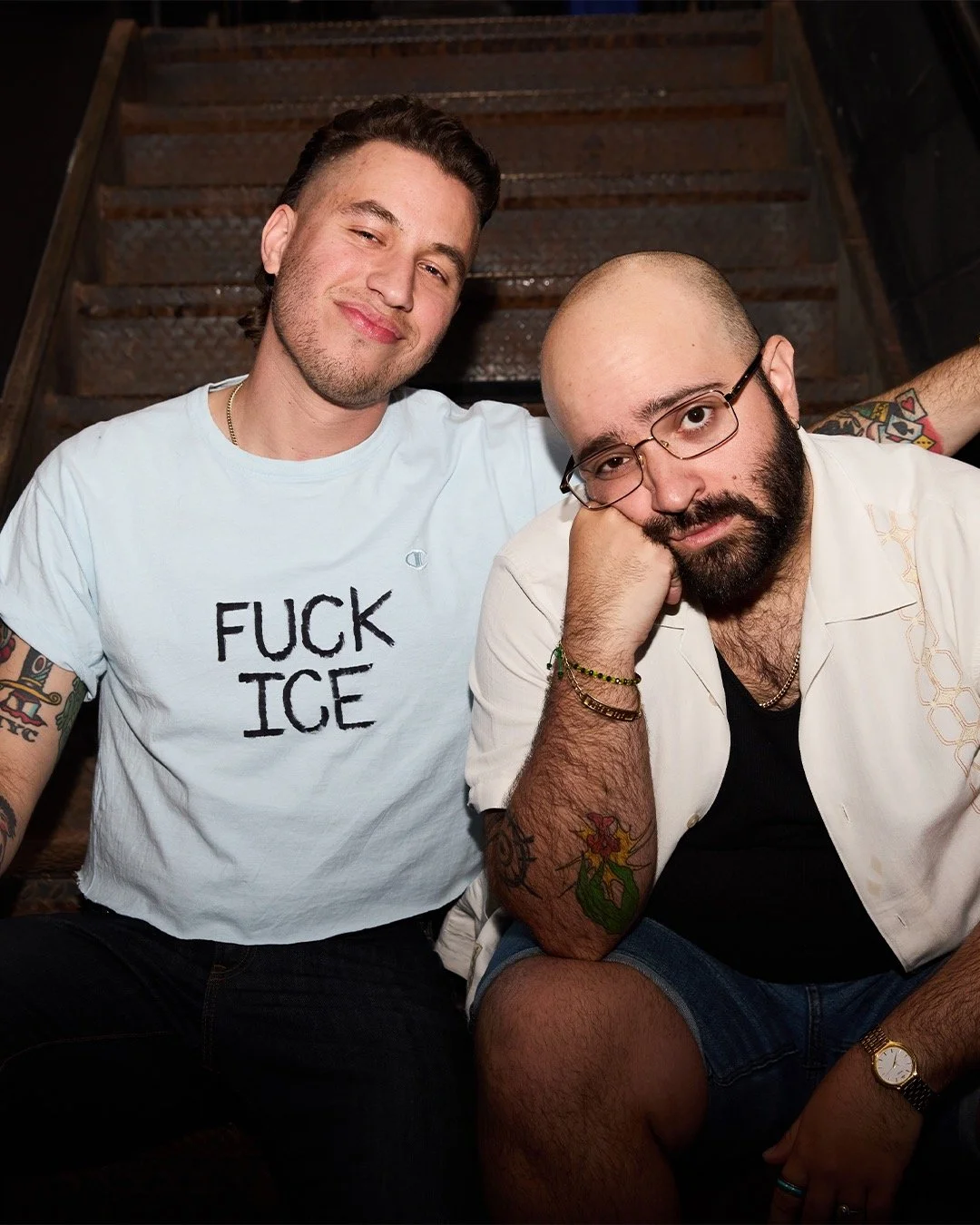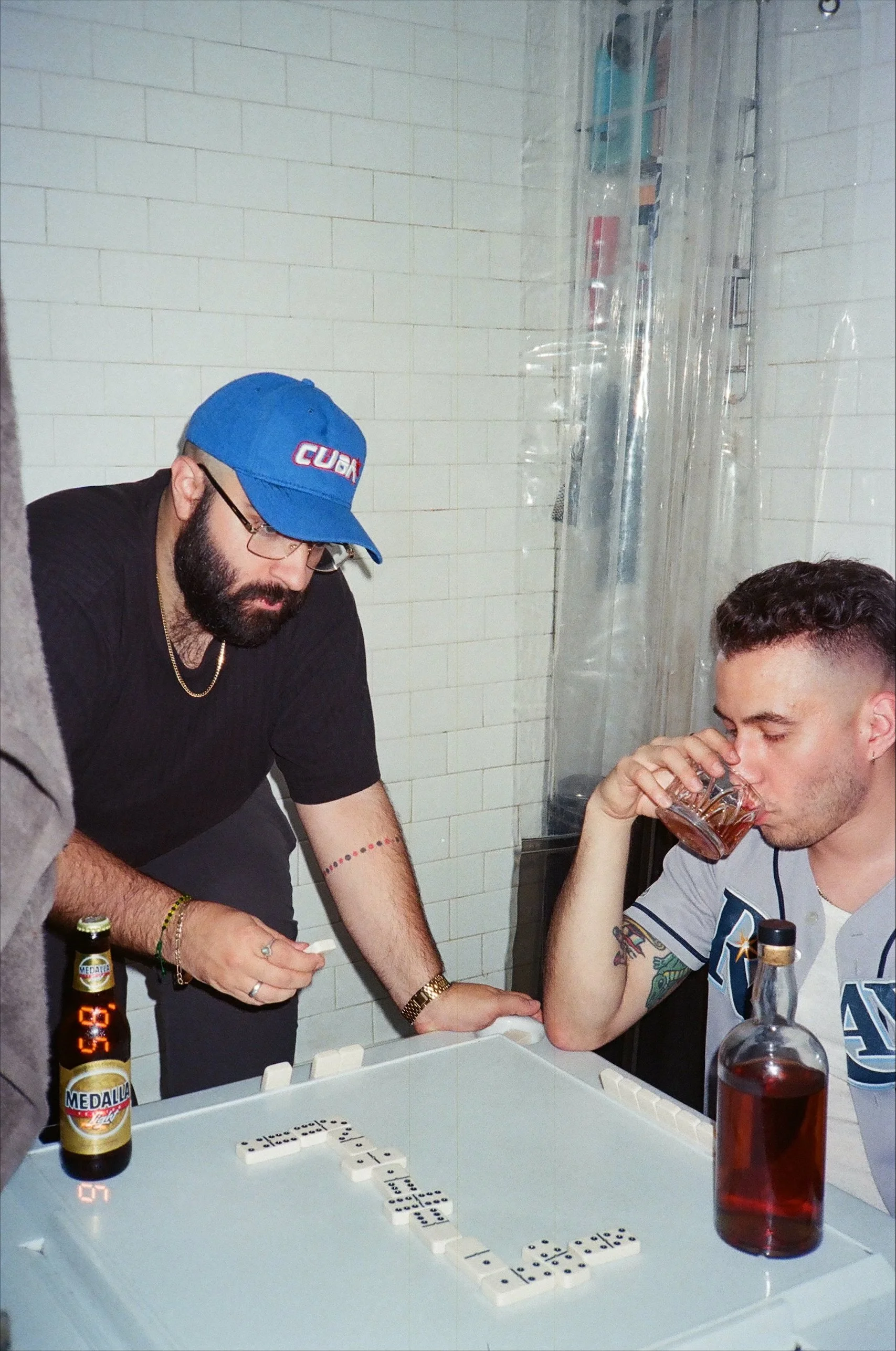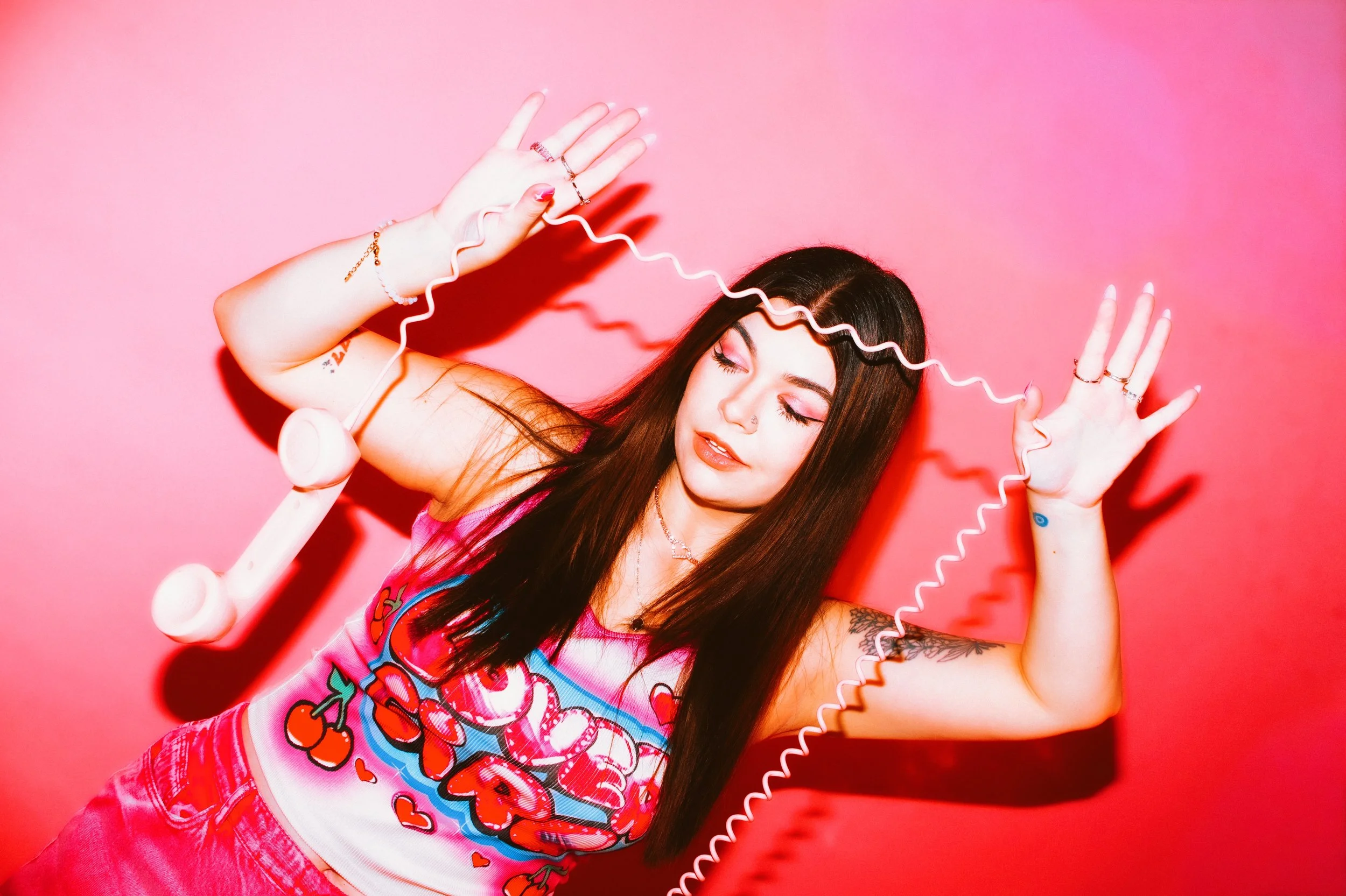Havana Club: Where Improv Meets Identity, Rhythm, and Revolution
Photo Credits: Melina Valdez
In a city overflowing with comedy shows, Havana Club stands out—not just for its laughs, but for what it represents. Created by Julian Hernandez and Taylor Gonzalez, this Latine-led improv experience blends humor, culture, and community in a way that’s both electrifying and overdue. Curious what happens when improv meets identity, rhythm, and revolution, keep reading below.
Where are you based?
Julian - We’re based in NYC. Taylor and I live a block apart in Brooklyn, Crown Heights shit.
Taylor - We live on Nostrand Ave. I eat a lot of Doubles.
Tell us about Havana Club! What inspired you to create a Latine-focused improv show, and what makes it different from other improv experiences?
Julian - Havana Club is Julian Hernandez and Taylor Gonzalez. An overly proud latine improv show. Each show we bring on two Latine guests (improvisers, Stand-Ups, writers) to improvise with us. Then without the guests, Taylor and I perform a one-act improvised play for the audience, just the two of us. We’ve been improvising for over 15 years and found that the arts scene is so devoid of Latine performers, we wanted a space to play freely together and to bring other Latine people in on this. We set out to make each show feel like a party, with DJ Plant papi spinning Salsa and Cumbia. Our show is different because it’s all Latino performers creating a silly, familial environment. We recognize this field is dominated by white performers and audiences, by poking fun at that we’re able to create something that feels funny, fresh, and egoless. It’s about the fun and playing together - I’m not trying to get a job at SNL from this show.
Taylor - Most improv shows are lo-fi in their approach. Two chairs. A handful of white dudes in flannels. That’s all that’s needed! We go all out with our production. We want it to be a memorable and fun experience, a real ass party. Not just a comedy show.
How does your heritage influence the style and energy of the show? What can audiences expect that they might not see in traditional comedy spaces?
Julian - I’m Cuban, Taylor is Puerto Rican & Salvadoran. We find that our cultures promote directness and self-advocacy that creates interesting characters in our show. The subtleties to characters we play are unexpected because they’re coming from a place of truth (on the most recent show I was playing a character based on my Grandfather, and talked about being hit by a train, which he claimed to be true). Latine audiences see themselves and white audiences see characters that are unfamiliar to them. I also find comedy to be inherently rhythmic and I believe our cultural backgrounds create a show that’s paced quickly and moves like watching a live band. We might play some slow songs, but an up tempo one is on the way.
Taylor - Yah, the live band analogy is it. I collect old Salsa records from the 60s and 70s because I grew up in a household filled with that music and that style influenced how we think. Our show is like a 14 piece band where Jooby and I run around trying to play all the instruments and take turns popping off sick solos.
You have both spoken about the lack of Latine representation in theater spaces. What have been some of the barriers you’ve encountered personally in this industry?
Julian - I studied improv at iO (in Chicago) and then at UCB (in NYC), in both experiences I came across no Latine performers in the classroom or as teachers. I had a non-Latine teacher scold me for shouting and hyping the crowd up at the top of a class show, he told me to never do that again, as I was being “way too much”. Largely what I felt trying to grow in this field is that there were not people like me doing it and thus leadership didn’t know how to nurture my voice so instead they shut it out for being different. Even today, look at the makeup of house teams at Comedy Theaters across the city and tell me they care about the Latine community that makes up 30% of the city’s population. Even with Havana Club, we frequently hear from non-Latine performers that they think this show is only for Latine people, and yet the all-white comedy shows are for everyone. It’s a mindset issue - we’re trying to challenge the status quo.
Taylor - One barrier I constantly see is through the lens of a teacher. Jooby and I both teach improv and one thing I’ve realized is that most latine people grow up thinking that the only forms of comedy that can exist for us is Lopezian stand up comedy, intrusive TikToks, or goofy slapstick comedic acting like grown ass men playing weird children (El Chavo del Ocho). I wish more latine people knew about improv because we were literally born with the skills to do it well. Luckily, I’m getting more of our people in my classes, but it’s an uphill battle.
Photo Credits: Katie Kutchmire
What does it mean for you to offer a space where Latine performers can “play freely” and audiences can see themselves on stage?
Julian - Improv is an art form of collaboration and spontaneity, you build with the other performers on stage. Often you’ll hear people say “first thought, best thought” - when you perform with people who share cultural identity with you, you know you’re going to be heard. Broadly, if my scene partner is playing an overbearing mother who is obsessed with her eldest son (her nene) I know that dynamic intimately. Or more specifically, I might bring up the devastating effect Marc Anthony and JLo’s divorce had on my household and my scene partner will know exactly what I’m talking about. Consequently, we’ve heard from countless guest performers that the show is the most fun they’ve ever had improvising. We create a supportive space where performers are encouraged to be themselves and that creates this newfound freedom. Audiences, regardless of ethnicity, see niche expressions of the human experience. That’s what we want.
Taylor - Yeah, the goal is to simply have a show that can appeal to everyone, but will be extra special to people in our community.
How do you hope the Havana Club challenges or reshapes the traditional comedy theater culture in New York City?
Julian- We’re trying to give a voice to the voiceless. We want comedy theaters to see all that Latines have to offer in the field, if only they’re given opportunities. We’re also trying to change the norm for improv performance. Go see any two improv shows in the city and tell me how many dinner and therapy scenes you see. We’re trying to showcase complicated human feelings and relationships in this ever-changing world. Our ethnic groups are being actively persecuted and we have to unpack that onstage, whether from the perspective of the oppressor (ironic) or the victim. If the country is feeling something, you better believe Taylor and I will talk about it on stage. We did a show late last year that wound up being in the Avatar universe as we unpacked how genocide comes to be and how soldiers find themselves complicit in it. We’re challenging the norm with truth.
Taylor - We’re not afraid to go wading into the darkness because that is where the real shit lives, especially nowadays. It helps to laugh. Content aside though, the comedy theater culture in NYC can be so lazy and we want to change that. We want to raise the bar, the energy, the roof, etc., and not just “what else what else” into a microphone. I’m an infamous hater of the stand-up scene for this reason, but improv can be just as bad! We want the experience to rival any of the fun things in this city you might spend your valuable time doing.
What advice would you give to other Latine artists trying to carve out space for themselves in comedy or theater?
Julian - Do it! Hit us up! No institution is going to look out for you or seek to understand your perspective. We have to build community and make them understand the power our people have.
Taylor - Write stuff in your voice. Put on shows that are fun for you and commit to them. Be unapologetic about who you are. It’s not going to happen over night, but if you keep at it, people will bite.
Do you see Havana Club serve as a form of cultural or emotional relief for your audience?
Julian - 100% I think we’re all eager to connect and be understood. I keep coming back to the concept of safety. We create a safe space for Latine audiences to know “we feel like you do” - and I think that just creates a softness in the room that can be felt by all. And again, there are not very many Latine performers in the NY Comedy space, so seeing someone who shares your cultural identity on stage creates comfort.
Taylor - Everyone’s angry and scared, and this is like one of those hippie things white people do where they go into the countryside and scream together and cry. We do the same thing but there’s a bar too.
A portion of ticket sales goes to UnLocal, a nonprofit providing immigration legal services. Why was it important for you to build a direct connection between the show and community support?
Julian - Our community is under attack, I believe that action needs to come from all angles. We’ve been doing this show for over three years now, and with the rise in ICE activity and deportations, we felt like it was an obvious choice. We want to help immigrants right here in NYC, it’s the least we can do.
Taylor - No one does improv for the money. We’re happy to give back however we can.
There’s often a gap between the arts and direct social services. Why was it important for you to connect Havana Club’s success to something tangible like legal aid for immigrants?
Julian - Our mission has always been to create space for the Latin community to create and play freely. While our people are being persecuted, we can’t be successful at this mission. The arts are wonderful, but don’t mean shit when people are being separated from their families. We need to affect as much change as we can, doing what we know how to do best - explosive comedy.
Taylor - We’re just trying to use our small platform to raise awareness wherever we can.
How does Havana Club amplify UnLocal’s mission through its performances? Can you share any moments where the audience’s awareness or engagement shifted because of partnership?
Julian - We’ve seen much larger audiences since we’ve announced these donations towards UnLocal, and I think the NY comedy scene is beginning to see how a comedy show can have a succinct mission, affect tangible change, and still be funny as hell.
Taylor - People are activated!
In what ways do you think comedy and storytelling can help demystify legal processes or encourage individuals to seek help from organizations like UnLocal?
Julian - Safety, Support, and information. There’s so much power in being around people who share your identity or situation. It’s not that we want to demystify legal processes, we want to create a path for direct support. Many immigrants are afraid of getting legal support, thinking it might raise flags with the government or cause undue issues. By advocating for UnLocal’s resources - we want folks to know that support is there for them. On top of that, with my Cuban heritage (my parents were born there), I draw from countless family experiences in the stories we tell. Through humor we can unify our experiences, and we hope that by bringing awareness to UnLocal at our shows we can build a safer city for our communities.
Taylor - Many people are already mystified by how to help at all. Money is great, of course, depending on where it's going. Legal aid is a specific and immensely helpful thing that people just need to be reminded of.
What impact do you hope this collaboration has on the Latinx community in NYC, both in terms of legal support and cultural representation?
Julian - I believe this is answered in the above questions! I hope that this opens up more comedy shows to support their communities (NYC) and create art with the goal to unify people.
Do you see Havana Club as not just entertainment but a form of advocacy or community organizing?
Julian - I see Havana Club as an entertainment show with community organizing. Our upcoming show on July 26 is going to double as a show/party. Starting in the afternoon we’ll have dominos, Drink specials, DJ Plant Papi spinning all the classics, food vendors and more. I think advocacy and change comes from community. We want Havana Club to feel likea party and for Taylor and I to be the friendly faces refilling your cup.
Taylor - We’re trying to organize the community to just be at the show first. Once they’re there, we can bring up these bigger issues and hopefully get people activated about them.
How do you balance being funny while also delivering something meaningful and socially conscious on stage?
Julian - This goes back to humanity. Improv is about showcasing humanity and relationships (like all good art is). We’re not punching down at anyone, we’re trying to showcase how real people think and feel. Humor is everywhere, that’s the easy part. Sharing our beliefs in a nuanced and thoughtful way through those characters is like threading a needle, but it’s like I tell my students, “breathe and trust yourself”. I trust Taylor with my whole heart and even in the heaviest of shows, we’ve found light. Ain’t that just the way.
Taylor - The beautiful part about improv is that it encourages exploration of other more nuanced emotions besides just yucking it up about dick jokes. In those darker, grey areas, we can create deeper and more satisfying comedy. I’d go so far to say that if it’s not meaningful, it ain’t funny.
Photo Credits: Melina Valdez
What’s your vision for Havana Club moving forward? More shows, more cities, or more partnerships like the one with UnLocal?
Julian - We just want this to keep growing! More shows, more guests, more cities. The more people who see the show (which as an improvised show, is entirely different each time), the more opportunities we have to uplift Latine voices in the arts and provide legal support in the real world. And until UnLocal says they don’t want our money, we want to keep donating to them. NYC is our home and we want to affect change in our backyard.
Taylor - Yah, we want to make our show the hottest ticket in town and also take it to other cities all over. Maybe there’s a big fundraiser event in the future. Hell, let’s go on tour.
It has been a crazy past few years, and we suspect at least four more. How have you been staying positive?
Julian - Everyday I’m in fear that members of my family will have their citizenship revoked, unlawfully without due process. Creating art, collaborating with friends, and baking pastelitos at home is the only way I’ve maintained my sanity. The time I spend on stage or at other comedy shows helps the harshness of reality melt away, finding joy is the only way to survive.
Taylor - Rum.
What is your motto in life?
Julian - Everything is real.
Taylor - Just do the damn thing.
To learn more about Julian, Taylor, and Havana Club, visit the links below:
Havanaclub.nyc
IG: @havanaclubnyc
IG: @joobliander






